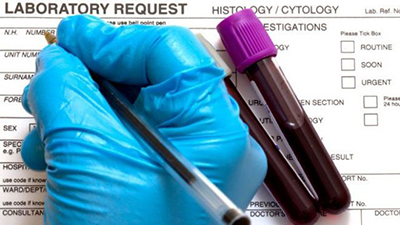
Source: www.foxnews.com
“RM xxx for a complete health screening! Includes blood tests, X-rays and ultrasound scans”
We’ve heard advertisements like this before on newspapers, magazines and on the radio. Are they necessary? And are they worth your money? First, let’s see what this ‘health screening’ is all about.
Health screening is a strategy adopted by health care personnel in a population to identify an unrecognised disease in individuals without symptoms or signs. While health screening is a good tool to detect diseases, it is not without its flaw, such as misdiagnosis, over diagnosis, commercialization, etc. Hence, a good health-screening tool usually has high sensitivity, but not high specificity. Let me explain.
Take for example, a self-breast examination. It is widely used to screen for breast cancers. But note that if you find a lump, it does not necessary mean the diagnosis is breast cancer. Therefore, the examination is highly sensitive (enable the person to detect an abnormality), but not specific (not confirming any specific diagnosis).
So, should you put your hard earned money to get these tests done? Let’s see what is necessary.
Basic health screening
In most local government or private clinics, there are checklists or a screening questionnaires for diseases like hypertension, diabetes, psychiatric disorders etc. These are basic questions and will point out any risk on having an underlying disease. These are useful to help you decide whether you need more detailed tests or investigations. You should also measure your blood pressure regularly at these clinics or you can purchase a home blood pressure monitoring device.
Blood tests
I would recommend a basic blood test panel to check on your overall health (should be done yearly). This would include:
- Full blood count – to check for any infection (chronic or acute), anaemia (lack of red blood cells), any other genetic blood disorders
- Renal (kidney) profile – to assess function of kidneys
- Liver profile – to assess function of the liver
- Fasting lipid profile – to check any cholesterol abnormality
- Fasting glucose (sugar) level – to check for possible diabetes
Special screening tests
There are some special screening tests that I would highly recommend. They are:
- Pap smear – recommended for all ladies to screen for cervical cancers
- Self-breast examination (women) – to screen for breast cancers
- Mammogram/breast ultrasound (women) – to screen for breast cancers
- Self-testicular examination (men) – to screen for testicular cancers
What about special blood tests like cancer markers?
These are expensive tests and usually only done in cases where a doctor suspects a diagnosis of cancer. Having a high level of CA 19-9 does not mean you have pancreatic cancer and a high level of alpha-fetoprotein does not mean you have liver cancer. These test are made to help the doctor to come to a diagnosis, together with a good history taking, clinical examination and other relevant investigations.
Does everybody need to do an X-ray of the chest?
I would not recommend an exposure to radiation unless needed. Again, a doctor would not ask for an X-ray if it doesn’t help in the making of a diagnosis. X-rays are NOT considered a routine general health screening tool.
So what do you do with this set of results?
Wherever you did the basic health screening tests, a doctor or a qualified health care professional should review the results and inform you accordingly. If needed, he or she must refer you to a clinical doctor to treat or to further investigate.
Conclusion
Health screenings are invaluable tools to ‘capture’ diseases like diabetes or conditions like high cholesterol before a person display any symptoms or signs, therefore cutting down the incidence of complications. But it is not a single diagnostic tool. Health screening results should be complemented with proper follow up with doctors who can evaluate, investigate and treat accordingly.
Dr. Khoo Yoong Khean is the Managing Editor of the Malaysian Medical Gazette and is currently serving in a rural district in Negeri Sembilan.
[This article belongs to The Malaysian Medical Gazette. Any republication (online or offline) without written permission from The Malaysian Medical Gazette is prohibited.]
References:
- http://en.wikipedia.org/wiki/Screening_(medicine)
- http://www.nhs.uk/Livewell/Screening/Pages/Screentest.aspx
